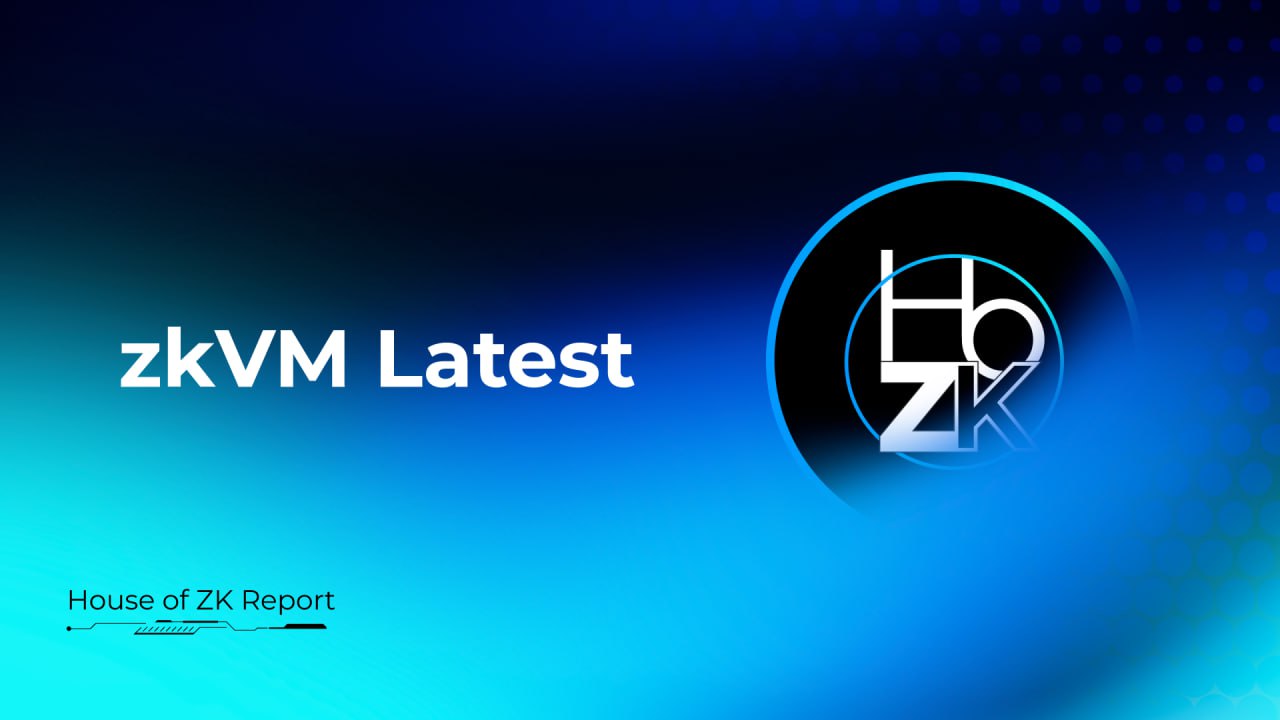
Here we report on the progress of the leading builders in the zkVM ecosystem, documenting recent significant releases, technical breakthroughs and general updates.
Featuring: @DelphinusLab, @NexusLabs, @openvm_org, @powdr_labs, @SuccinctLabs, @ziskvm, @ProjectZKM, & @zksync.
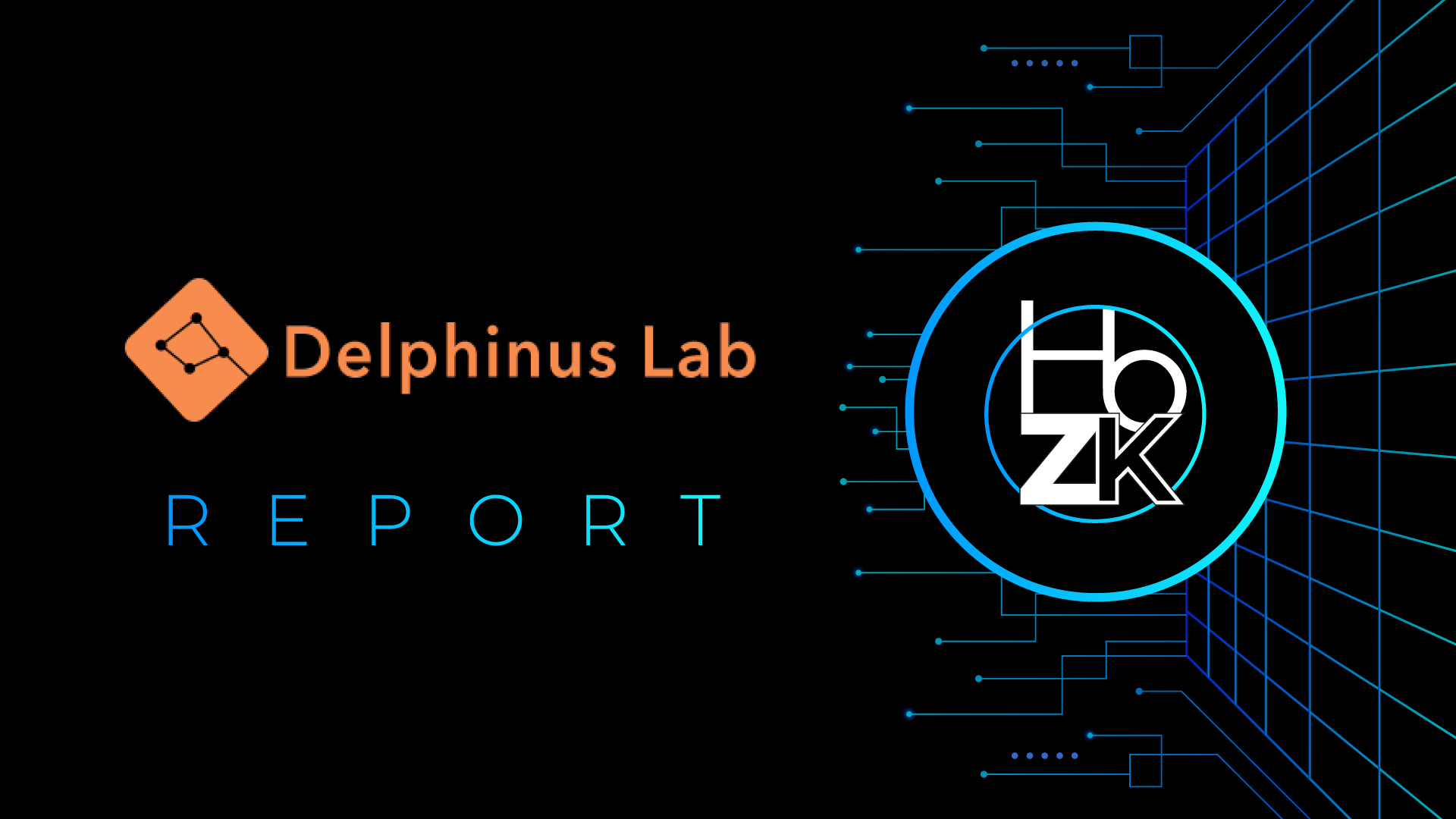
@DelphinusLab and @Fair3_community have launched zkFair, a blockchain-based “Fairness Oracle” built on the ZKWASM platform: https://x.com/DelphinusLab/status/1981624297845366784
The system enables users to vote privately while ensuring verifiable, tamper-proof outcomes on-chain. Each vote produces cryptographic proofs of eligibility and uniqueness, aggregated for scalable validation.
zkFair demonstrates how ZK computation can support privacy-preserving governance, blending social consensus with cryptographic integrity.
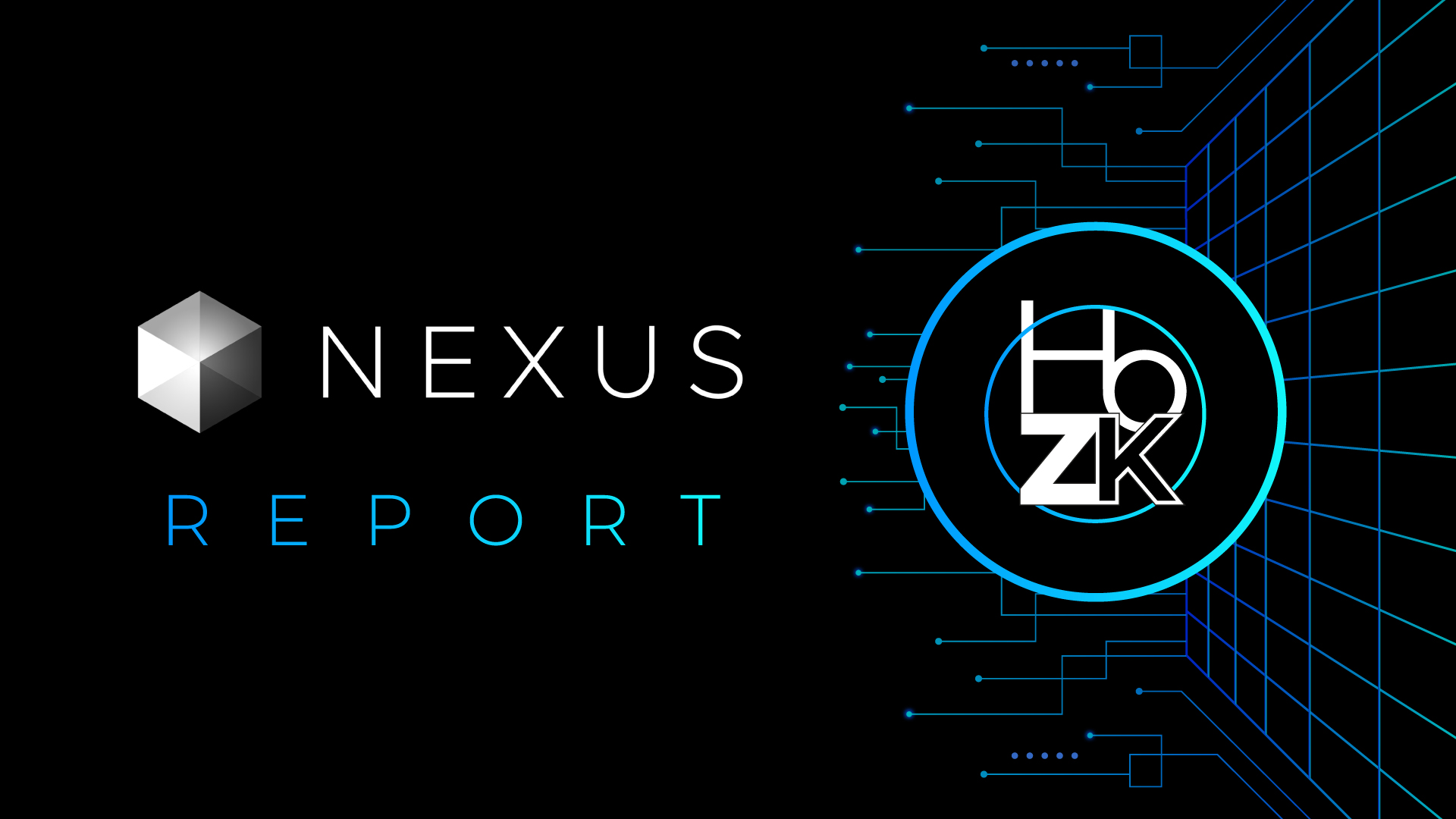
Roadmap
@NexusLabs has unveiled its product roadmap through 2026, outlining plans to build a verifiable financial network: https://blog.nexus.xyz/the-nexus-roadmap/
Key milestones include:
• Launching an upgraded Layer 1 testnet for developers and infrastructure partners in late 2025
• Introducing a natively integrated financial application on the testnet
• Moving to Mainnet in early 2026 with bridges, oracles, and developer tools
• Enshrining the financial application on the Layer 1 Mainnet in mid-2026
• Releasing zkVM 4.0 to boost proving speed and scalability
• Continuing long-term development toward fully verifiable finance and expanded asset support
changelog
Nexus has released its 10.31.25 changelog, highlighting UI improvements, prover enhancements, and a new public status page:https://blog.nexus.xyz/nexus-changelog-10-31-25/
Highlights:
• Nexus OS: The desktop layout now features a top navigation bar for easier access to tools and links. A survey banner gathers community input to shape product priorities.
• Gridcrew: Teams can include “meet the team” videos to showcase culture and values during crew selection.
• Status Page: A new page at http://status.nexus.xyz provides real-time performance and maintenance updates.
• zkVM v0.3.5: Introduces full RISC-V M extension support, optimized proving performance, improved memory handling, and SDK upgrades for developers.
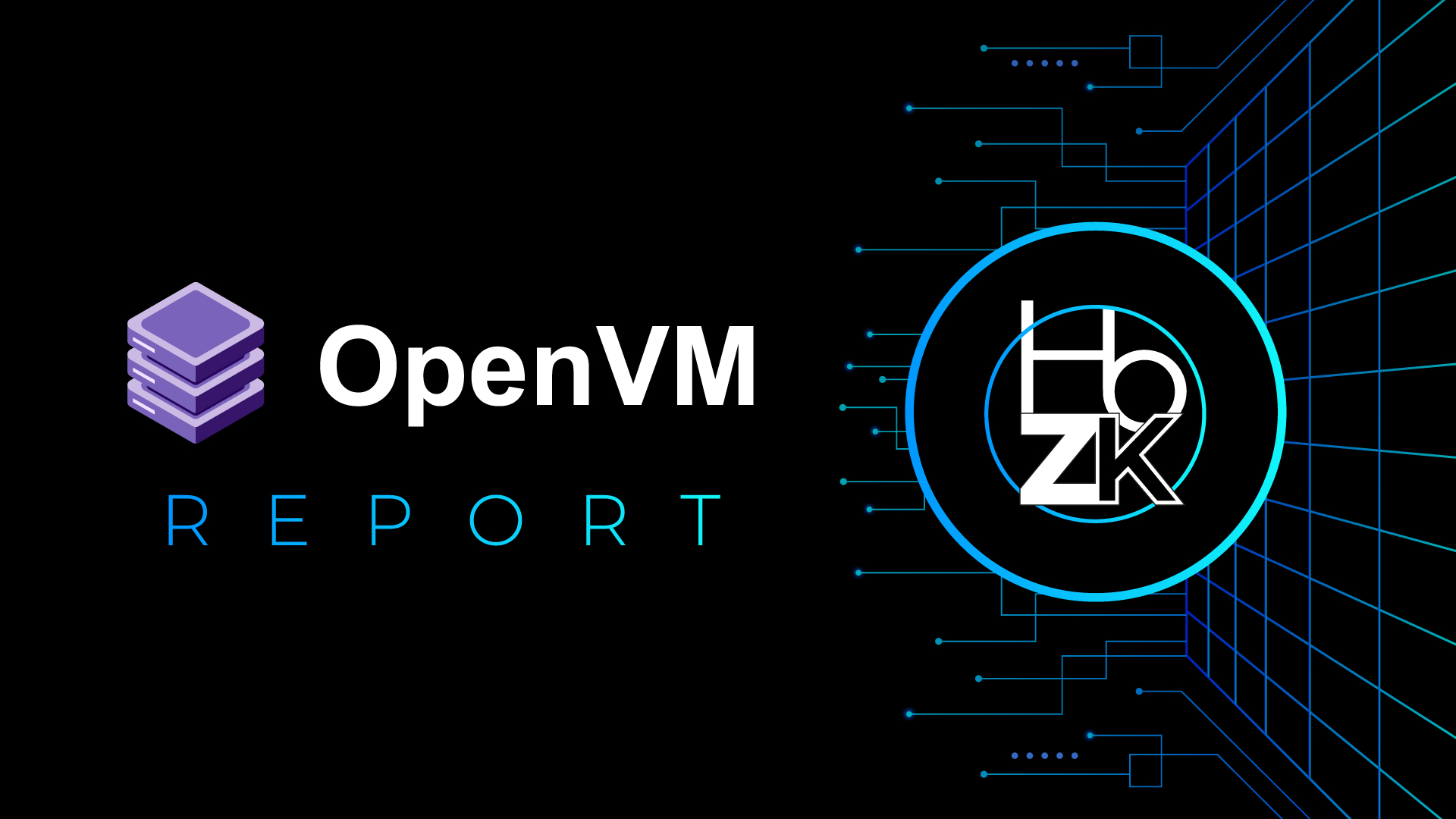
@openvm_org has released version 1.4.1, introducing major GPU prover performance improvements through memory optimizations and an update to the stark-backend v1.2.1 for CUDA efficiency: https://x.com/openvm_org/status/1983917004240384141
The new version enables proof generation for average @ethereum mainnet blocks in under 12 seconds, with costs as low as $0.0001 per transaction.
Additional updates include configurable segmentation in the CLI, compatibility with Rust nightly-2025-08-02, and several fixes for memory alignment, execution handling, and CUDA kernel management.
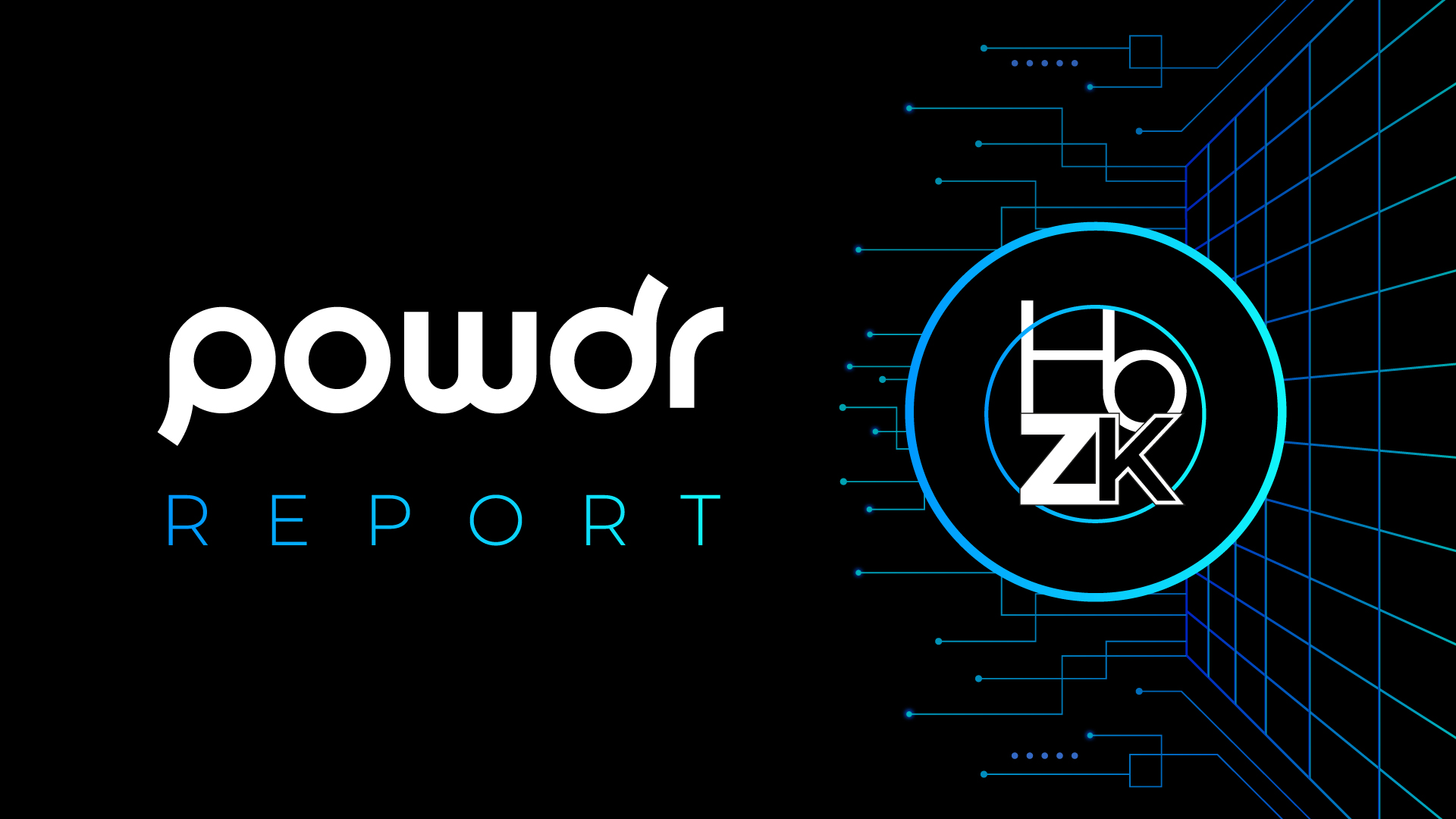
@georgwiese of @powdr_labs has released a study covering how the Twist and Shout (by @srinathtv of @MSFTResearch and @SuccinctJT of @a16zcrypto) memory checking arguments can be adapted for hash-based proof systems using techniques from logup* (by @levs57): https://powdr.org/papers/twist_shout_logup_star.pdf
The paper explains that by committing to matrices with one-hot rows, both protocols achieve significantly lower commitment costs, especially for small memories such as RISC-V registers in zkVMs.
The adapted methods provide efficient read-only (Shout) and read/write (Twist) memory arguments without requiring commitments to timestamps or memory values, improving scalability for larger tables and proof systems.
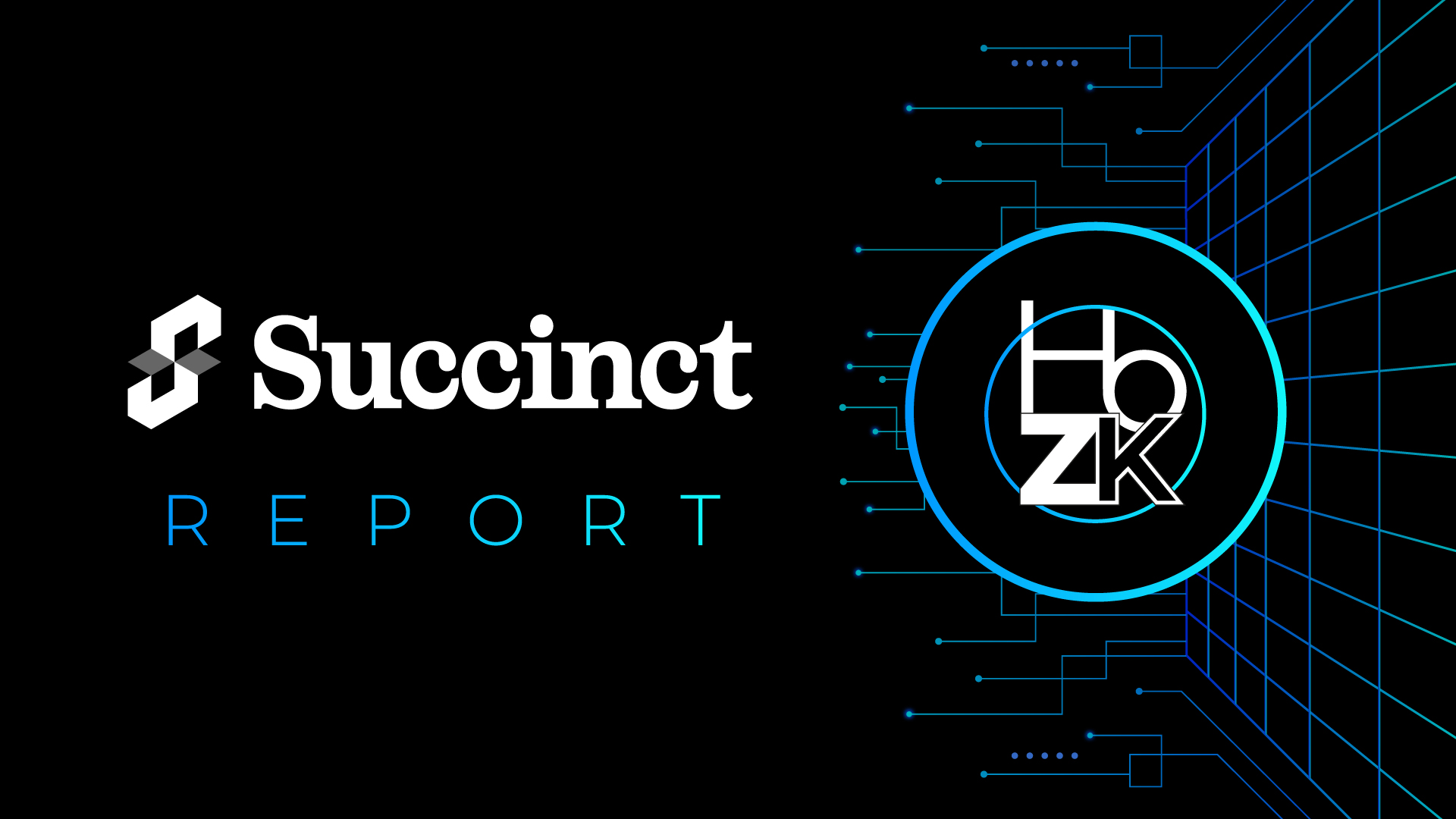
Research
@ronrothblum, Head of Cryptography of @SuccinctLabs, and Eden Florentz-Konopnicki of @TechnionLive, presented a new framework for constructing succinct ZKPs that rely only on one-way functions and make exclusively black-box use of them: https://eprint.iacr.org/2025/2030
Their work shows that such proofs exist for NP relations computable by bounded-depth circuits, achieving negligible soundness error and additive communication overhead close to the witness size.
Central to their result is a statistically binding polynomial commitment scheme, a new primitive that enables efficient, black-box verification without compromising security or communication efficiency.
Proof-of-Reserves
Succinct, together with @UnitasLabs and @primus_labs, has introduced a privacy-preserving Proof-of-Reserves protocol for the USDu stablecoin: https://x.com/SuccinctLabs/status/1985455960425709860
The system verifies that reserves back USDu without exposing off-chain investment strategies. Using zkTLS and Succinct Private Proving, it ensures authentic data and confidential collateral verification, enhancing trust and security across decentralized finance.
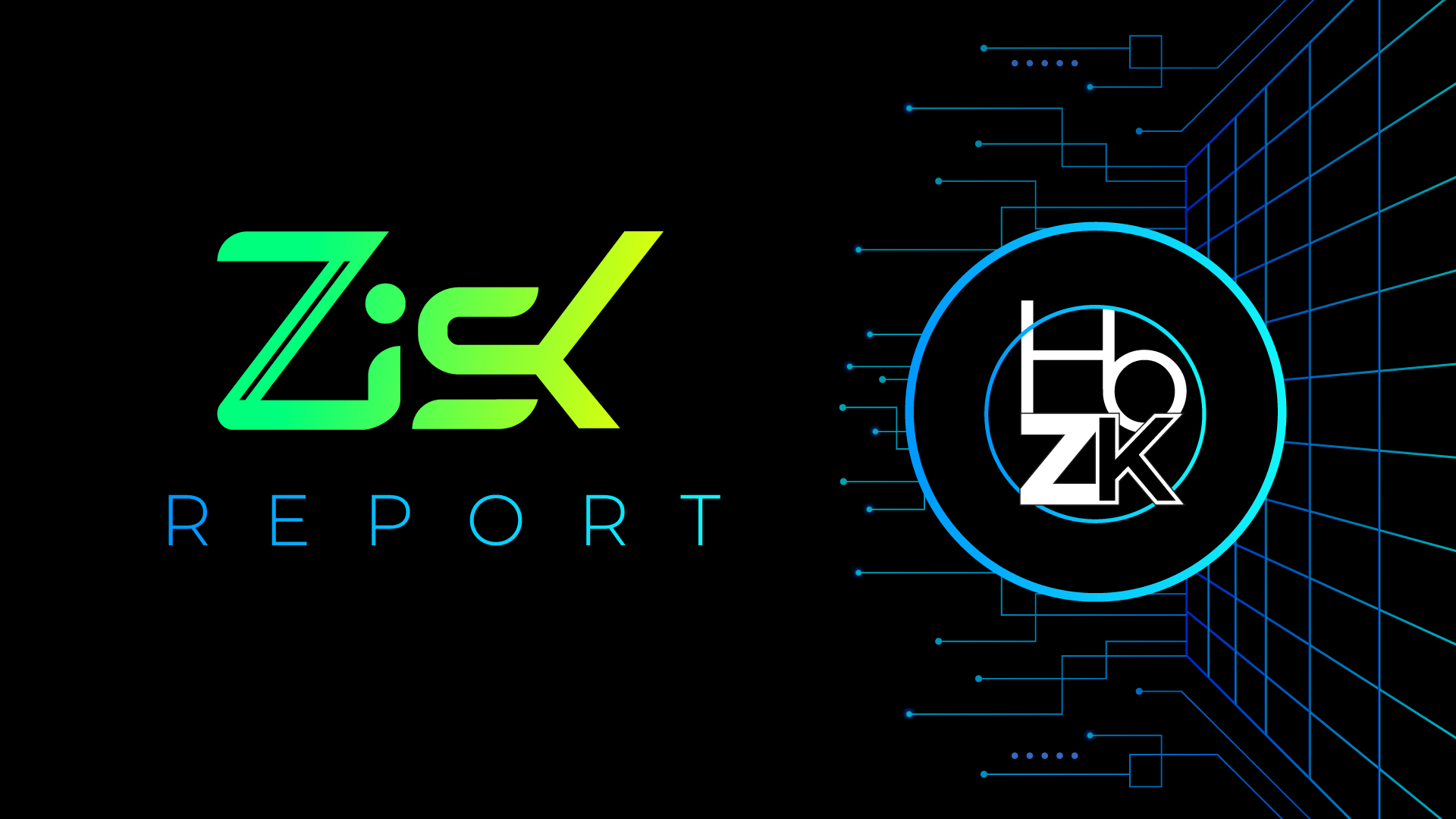
@ziskvm has released v0.13.0, which enabled the team to achieve near real-time @ethereum block proving with an average proof time of about 7.5 seconds: https://x.com/ziskvm/status/1983221583704445333
The setup uses 24 RTX 5090 GPUs across three clusters and introduces major improvements, including optimized GPU data layout, faster expression evaluation, and enhanced fault tolerance in distributed proving.
Note: The software remains under development and not yet recommended for production use.
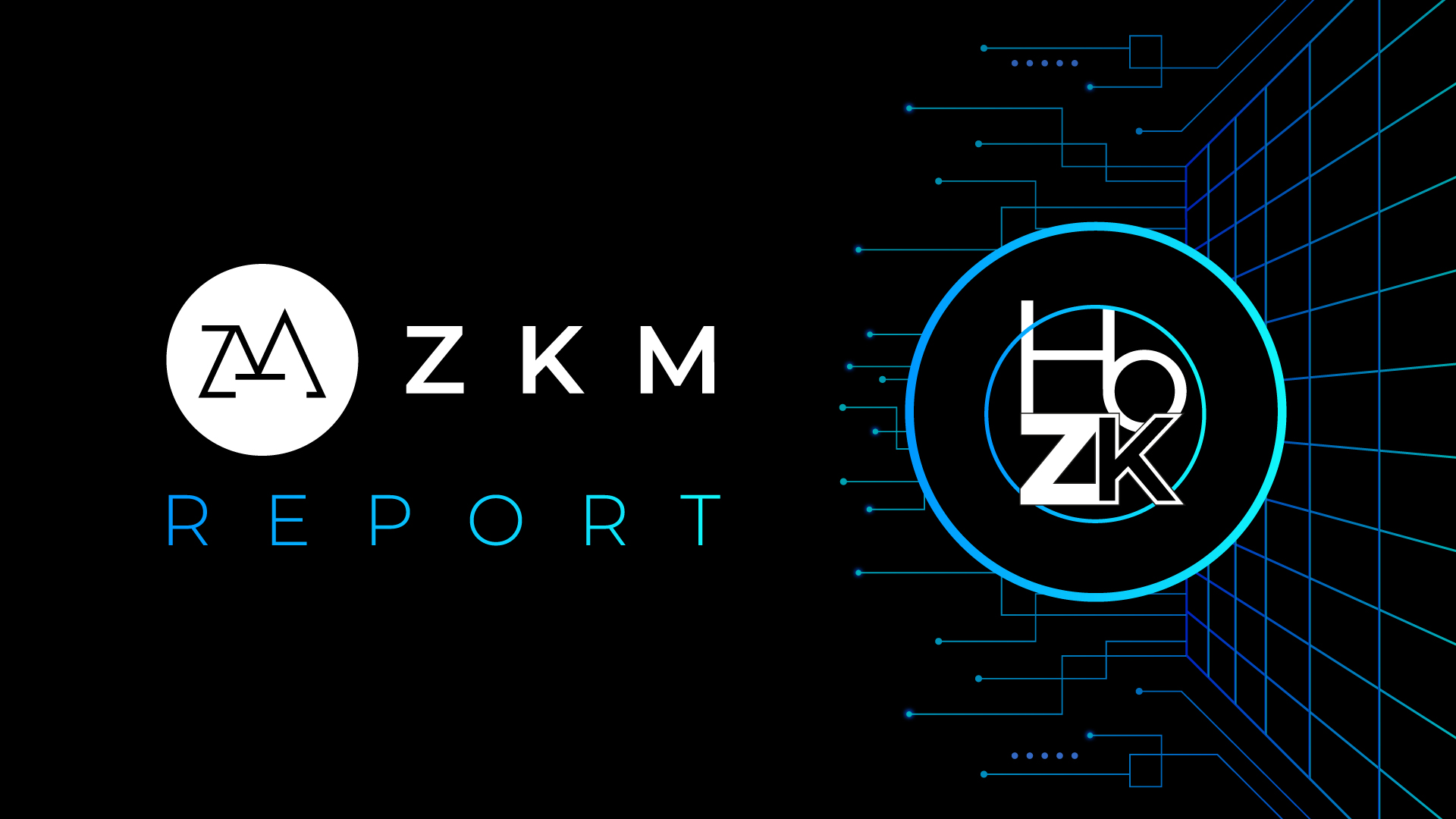
Ziren v1.2.0
@ProjectZKM has released Ziren v1.2.0, an update improving interoperability and developer experience: https://zkm.io/blog/ziren-v1-2-0
The version adds compressed-to-Groth16 proof conversion, a no-std STARK verifier, and upgraded network proving with cycle tracking and configurable distributed proving. A new CLI tool enables easier project setup and proof execution.
Additional features include @golang guest and partial Linux ABI support, Bitcoin guest integration, and Poseidon2/AES-128 precompiles. The release also updates documentation, dependencies, and security for greater stability.
The project also open-sourced Ziren’s GPU prover binaries to improve reproducibility and widen access to accelerated proving - foundational for community testing and the upcoming ZKM Proof Network.
x402
ZKM published an article explaining its role as a facilitator for x402 agent-to-agent payments: https://zkm.io/blog/verifying-x402-a-complete-infrastructure-for-the-internets-trustless-value-layer
Working alongside @MetisL2, @GOATRollup, and @LazAINetwork, ZKM fills in the missing layers - settlement, attribution, and cryptographic proof - making x402 trust-minimized and verifiable.
Media
In a recent episode of @HouseofZK Radio, @DacEconomy, Co-founder of ZKM, shared insights on how ZK intersects with artificial intelligence: https://x.com/HouseofZK/status/1981731547037270442
He discussed ZKM’s decision to build a universal zkVM based on MIPS32r2 for verifiable computation beyond blockchain, and explained how real-time proving can enable trusted AI inference. Ming also outlined @LazAINetwork's vision for socially-driven, verifiable data.
Full podcast: https://hozk.io/radio#81-ming-guo-co-founder-of-zkm
Events
ZKM is a sponsor of Verifying Intelligence 3.0, hosted by @HouseofZK alongside @brevis_zk and @invisiblgarden: https://x.com/HouseofZK/status/1985410545852239983
The event takes place on Nov 19th at Cultural Vivo in Buenos Aires during @EFDevcon. It explores verifiable AI, privacy, and agent-to-agent payments - and is also supported by @MinaProtocol, @0G_labs, @EtherArgentina, @VeridiseInc, @OntologyNetwork, @Starknet, and @ZKVProtocol.
ZKM is also a sponsor or @EtherArgentina's hackathon, where they'll run their own dedicated track.
Partnerships
ZKM announced a partnership with @VeridiseInc to verify the determinism of Ziren, its zkVM’s arithmetic core, using the Picus verification platform: https://zkm.io/blog/verifying-determinism-in-zirens-arithmetic-core
Veridise adapted Ziren’s Plonky3 constraints and ran analyses through @AuditHubDev. Initial results confirmed deterministic behavior for addition and subtraction in the AddSub chip. The teams plan to expand verification to full circuits and integrate checks into ZKM’s development workflow.
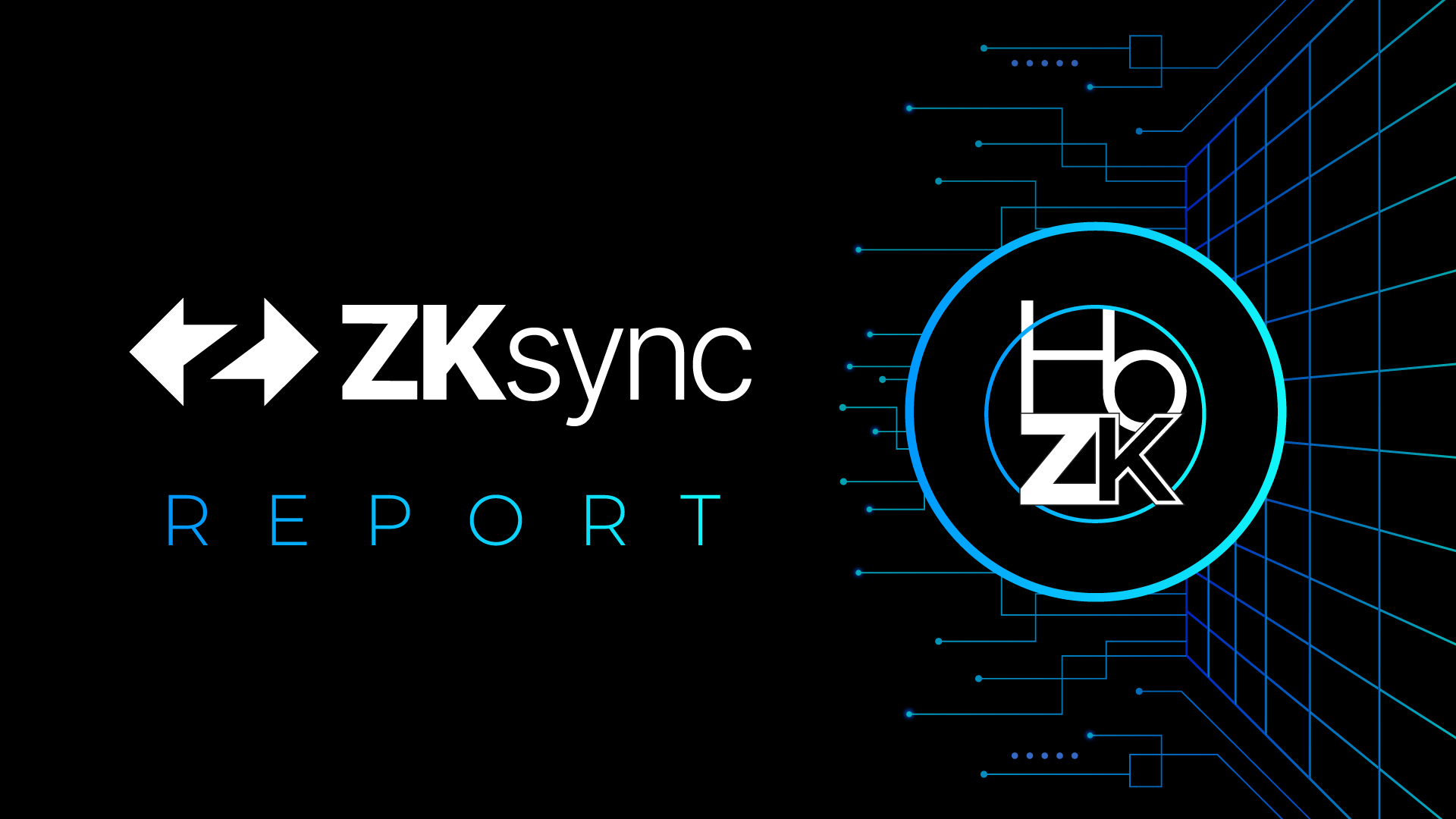
@zksync shared new results for Airbender, which is now leading the @eth_proofs leaderboard on proving speed: https://x.com/zksync/status/1983243385147146291
Built on a custom RISC-V architecture developed by the team over the past two years, Airbender processes ZKsync blocks in about a second and @Ethereum blocks in under 50 seconds on a single GPU.
This development is another testament to the importance of the Ethproofs initiative and how it has dramatically helped to incentivize the incredible progress taking place in the zkVM ecosystem.